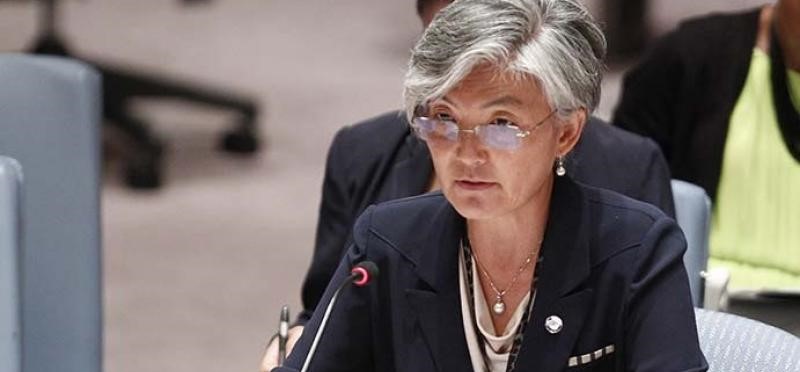S Korea plan to break stalemate in talks
October 4, 2018 | Expert Insights

Seoul is proposing that the United States hold off on a demand for an inventory of North Korea’s nuclear weapons.
Instead, South Korea is asking the US to accept the verified closure of a key North Korean nuclear facility as a next step in the negotiations.
Background
The Korean peninsula was divided post World War II in 1945. In 1950, North Korea, supported by China and Russia, invaded South Korea. The United Nations and US forces intervened on behalf of the South and the invading army was driven out during the Korean War. The two nations signed an armistice in 1953, however, there has been no peace treaty and they are technically still at war.
US President Donald Trump had earlier taken an aggressive stance while countering North Korea. Both Kim Jong Un and Donald Trump were locked in an extended war of words in 2017, with both threatening wars.
In 2018, the tide turned in the ties between the US and North Korea. It began with the North Korean leader announcing that he was willing to enter into diplomatic discussions with South Korea. Since then, the relationship between South Korea and North Korea has exponentially improved. North Korea sent across a delegation to participate in the Winter Olympics held in Seoul. In March 2018, a South Korean delegation headed to North Korea to partake in historic talks to ease the tensions that have built up in the Korean peninsula.
Read more about our extensive analysis on the recent developments in the Korean peninsula here, here and here.
Analysis
South Korea is proposing that Washington hold off on a demand for an inventory of North Korea’s nuclear weapons and accept the verified closure of a key North Korean nuclear facility as a next step in the negotiations.
The plan is designed to break the impasse between North Korea and the United States as President Trump comes under mounting pressure to demonstrate progress on the denuclearization talks. It will be one of the options available to Secretary of State Mike Pompeo as he arrives in North Korea on Sunday to restart negotiations.
In exchange for the verified dismantlement of the Yongbyon nuclear facility, the United States would declare an end to the Korean War, a key demand of Pyongyang that U.S. officials have been reluctant to make absent a major concession by North Korea.
“What North Korea has indicated is they will permanently dismantle their nuclear facilities in Yongbyon, which is a very big part of their nuclear program,” South Korean Foreign Minister Kang Kyung-wha said during a discussion at the South Korean mission to the United Nations. “If they do that in return for America’s corresponding measures, such as the end-of-war declaration, I think that’s a huge step forward for denuclearization.”
Sustained fighting in the Korean War ended with a truce in 1953, but a formal peace treaty has never been signed. In recent weeks, North Korea has demanded almost daily that the United States sign an end-of-war declaration.
U.S. negotiators have tried to get North Korea to provide a list of nuclear facilities and weapons they wanted dismantled but failed to secure an agreement even after Trump’s meeting with North Korean leader Kim Jong Un in Singapore and three trips to North Korea by Pompeo.
North Korea’s state-run broadcaster again called the demands for a nuclear inventory “rubbish.”
Whether Seoul can persuade Washington to take up the proposed bargain remains to be seen. The State Department declined to comment on its willingness to delay demands for an inventory or declare an end to the Korean War.
Hawks inside the Trump administration, in particular, national security adviser John Bolton, remain sceptical of signing such a declaration out of fear that it will give North Korea and China justification to demand the removal of the 28,500 U.S. forces stationed in South Korea.
Counterpoint
The trouble with North Korea is its unpredictability during negotiations. Despite the pledge made by Supreme Leader Kim Jong-Un, there is no guarantee of North Korea de-nuclearizing without the sanctions being lifted. Seoul and Pyongyang can issue many joint statements on cooperation, but the involvement of the US implies a nod of approval from Washington for every small act of cooperation between the two countries.
Assessment
Our assessment is that President Moon hopes to break an impasse in talks with the US over North’s denuclearisation and push for an irreversible and permanent peace between the two countries. We also believe that President Moon will encourage business conglomerates, including Samsung, to expand cross-border business projects.








Comments